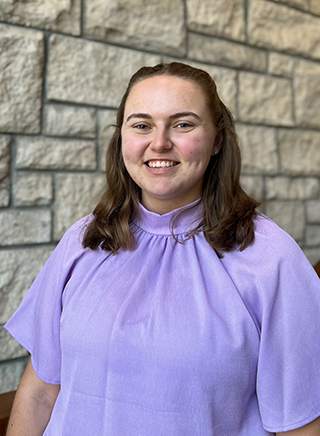Rachel Sebesta

Year in school: Junior
Major: Agricultural education and global food systems leadership; minors in agronomy and anthropology
Hometown: Wilson, Kansas
Why did you choose K-State?
How are you involved at K-State?
What has been your favorite K-State experience?
While I’ve had numerous incredible experiences at K-State, one memory stands out vividly in my mind. It was during my freshman year when I found myself seated in McCain Auditorium, eagerly listening to Frank Mitloehner, a distinguished professor and air quality specialist from UC Davis, deliver a captivating lecture as part of the Henry C. Gardiner Global Food Systems Lecture Series. Professor Mitloehner’s presentation centered on the innovative recapture of methane from animal agriculture. I can still vividly remember what seat I sat in and how I got out my notebook from my bookbag just so I could take notes on a lecture that wouldn’t have a test over later. I’ve always loved learning but that day, I thrived. I just couldn’t get enough. That’s when for me I realized that K-State isn’t just in Kansas (although it’s a very big part of its identity). K-State has ties across the country and is a place where individuals strive to make a difference.
How does K-State care for Kansans in your hometown community?
Coming from a rural community, K-State was most present through K-State Research and Extension, or KSRE for short. They helped farmers make planting and herbicide decisions, taught outreach programs over canning your garden’s vegetable, and was in charge of Ellsworth County’s 4-H program, of which I was very involved. Their little office in the basement of the courthouse was never quiet, since there were always people in to have their questions answered. It was also through KSRE that I met some of my very first mentors as a teenager, who helped shape me into the person I am today.
Why do you want to bring K-State to your community?